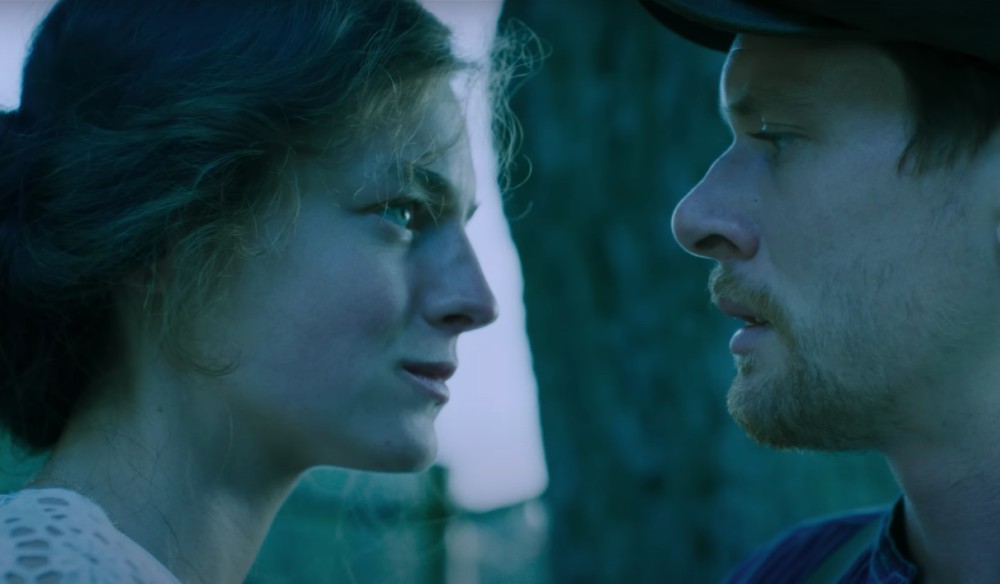“Sexual intercourse began in nineteen sixty-three… between the end of the Chatterley ban and the Beatles’ first LP.” So wrote Philip Larkin in his much-quoted poem “Annus Mirabilis.” Sixty years later, while the Beatles’ Please Please Me is not entirely synonymous with matters sexual, there is still a fascination with DH Lawrence’s most famous book, Lady Chatterley’s Lover. It remains both a boundary-pushing erotic landmark and, now that the controversy behind it has long passed, a deeply affecting novel that is both romantic and Romantic in its reach.
Lady Chatterley’s Lover has often been popular with filmmakers, and the recent Netflix-funded adaptation, directed by Laure de Clermont-Tonnerre and starring Emma Corrin as the frustrated Constance Chatterley and Jack O’Connell as the earthy gamekeeper Mellors, has attracted particular praise, both for its frank and explicit sex scenes and for its fidelity to Lawrence’s novel.
Deborah Ross wrote in The Spectator that “this Netflix version doesn’t play it as high-toned smut or as a pop-culture joke. It’s more in keeping with Lawrence’s alternative title for the novel, Tenderness, and it’s more a gentle, affecting, immersive love story than a sex story although there is plenty of sex in it.” Ross also praised the film’s “lovely knitwear,” and given the amount of nudity that the actors undertake, one has to be grateful that they could be kept warm.
Had the book been published in a different, less censorious age, then it is doubtful it would continue to attract the interest it still holds. Lawrence was reportedly inspired to write it after reading EM Forster’s gay love story Maurice, which, although a good deal less explicit in its presentation of passion, contains a similarly class-spanning divide. It also features a monosyllabic and brooding gamekeeper character who awakens similar unmentionable passions in the breast of its upper-class protagonist. Yet Forster, horrified by the thought that he would become synonymous with Maurice rather than the more genteel likes of A Room with a View, asked that it not be published until after his death. As he lived until 1970, he might have been surprised to find that his novel was seen as remarkably tame in the era of Last Exit to Brooklyn and Naked Lunch.
Lady Chatterley’s Lover, however, was not. The British trial in 1960, in which Penguin Books was found not guilty of publishing obscene material on the grounds that the work had literary merit, is justly famous, not least the instantly outdated remark by the prosecuting counsel that “is this the kind of book that you would wish your wife or servants to read?”
But there is another, less heralded court case that involved the book in the United States the previous year. The novel was banned in America in 1929 — the year before Lawrence’s death — on grounds of obscenity, and stayed banned for the next three decades. Senator Reed Smoot famously denounced it in front of the Senate, saying, “I’ve not taken ten minutes on Lady Chatterley’s Lover, outside of looking at its opening pages. It is most damnable! It is written by a man with a diseased mind and a soul so black that he would obscure even the darkness of hell!”
Others have disagreed. In 1959, the publisher Grove Press, a small, courageous independent run by Barney Rosset, challenged the ban, along with that of Henry Miller’s Tropic of Cancer, and was successful, citing the First Amendment and the consequent blocking of free speech. Anticipating what would happen in Britain, the novel’s “redeeming social or literary value” was thought to be reason enough to allow its publication, and it duly appeared in unexpurgated form later that year, something that the New York Times has described as anticipating “an explosion of free speech.”
Today, opinion as to the literary value of Lady Chatterley’s Lover remains divided. For everyone who defends it as Lawrence’s masterpiece, a dynamic and poetic exaltation of human emotion, there are others who denounce it, as Susan Sontag did, as “a sexually reactionary” book, or who say wearily of its author that, like Virginia Woolf, “one feels that not a single word has been chosen for its beauty, or for its effect upon the architecture of the sentence.”
This seems both harsh and short-sighted. As the feverish interest in the new film has shown, Lawrence is both prophet and pornographer, romantic and realist. His legacy to literature will be considerably greater than that of a short-sighted onanist.





















